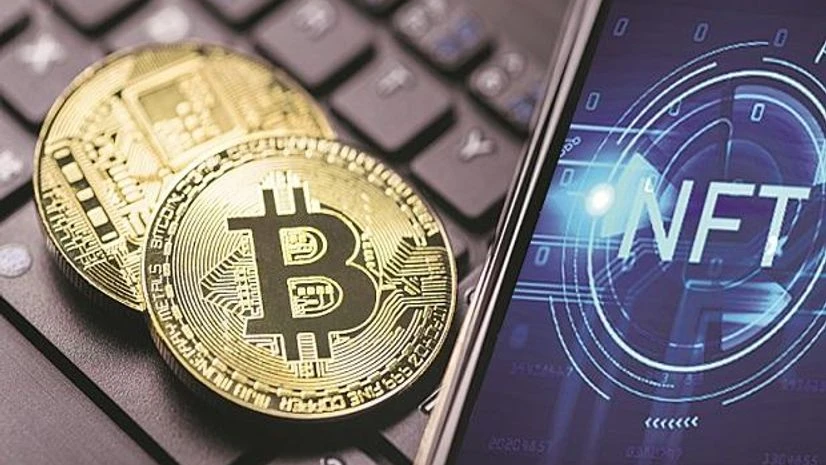After serious concerns were raised on cryptocurrencies and their misuse for money laundering and hawala-based transactions by terror groups and criminals, a new report has claimed that money laundering through the buying and selling of non-fungible tokens (NFTs) is becoming a growing sector.
According to a report by Blockchain data platform Chainalysis, they found a small but growing portion of activity on NFT marketplaces that could be attributed to money laundering.
"While money laundering in physical art is difficult to quantify, we can make more reliable estimates of NFT-based money laundering thanks to the inherent transparency of the Blockchain," the report said late on Wednesday.
The value sent to NFT marketplaces by illicit addresses jumped significantly in the third quarter of 2021, crossing $1 million worth of cryptocurrency.
The figure grew again in the fourth quarter, topping out at just under $1.4 million.
"In both quarters, the vast majority of this activity came from scam-associated addresses sending funds to NFT marketplaces to make purchases," the report informed.
More From This Section
Both quarters also saw significant amounts of stolen funds sent to marketplaces as well.
"Perhaps most concerningly, in the fourth quarter, we saw roughly $284,000 worth of cryptocurrency sent to NFT marketplaces from addresses with sanctions risk," said the researchers.
NFTs can store data on blockchains and that data can be associated with images, videos, audio, physical objects, memberships, and countless other developing use cases.
NFT popularity skyrocketed in 2021. Chainalysis tracked a minimum $44.2 billion worth of cryptocurrency sent to ERC-721 and ERC-1155 contracts -- the two types of Ethereum smart contracts associated with NFT marketplaces and collections -- up from just $106 million in 2020.
Some NFT sellers are making a killing with wash trading too.
"Wash trading", meaning executing a transaction in which the seller is on both sides of the trade in order to paint a misleading picture of an asset's value and liquidity, is another area of concern for NFTs."
Using Blockchain analysis, the researchers identified 262 users who have sold an NFT to a self-financed address more than 25 times.
The 110 profitable wash traders have collectively made nearly $8.9 million in profit from this activity, dwarfing the $416,984 in losses made by the 152 unprofitable wash traders.
"Even worse, that $8.9 million is most likely derived from sales to unsuspecting buyers who believe the NFT they're purchasing has been growing in value, sold from one distinct collector to another," said Chainalysis.
"NFTs offer potential for abuse. It's important that as our industry considers all the ways this new asset class can change how we link the blockchain to the physical world," said the report.
Over Rs 4,000 crore of illegal transactions via cryptocurrency exchanges were unearthed by the Enforcement Directorate (ED) in India in the last one year, reports said in November last year.
Grave concerns were raised over the misuse of digital coins on the Dark Web for terror acts and drugs trafficking by militant organisations, and for money laundering and hawala-based transactions -- posing a serious threat to national security and a big challenge to the security agencies in India.
--IANS
na/
(Only the headline and picture of this report may have been reworked by the Business Standard staff; the rest of the content is auto-generated from a syndicated feed.)

)
